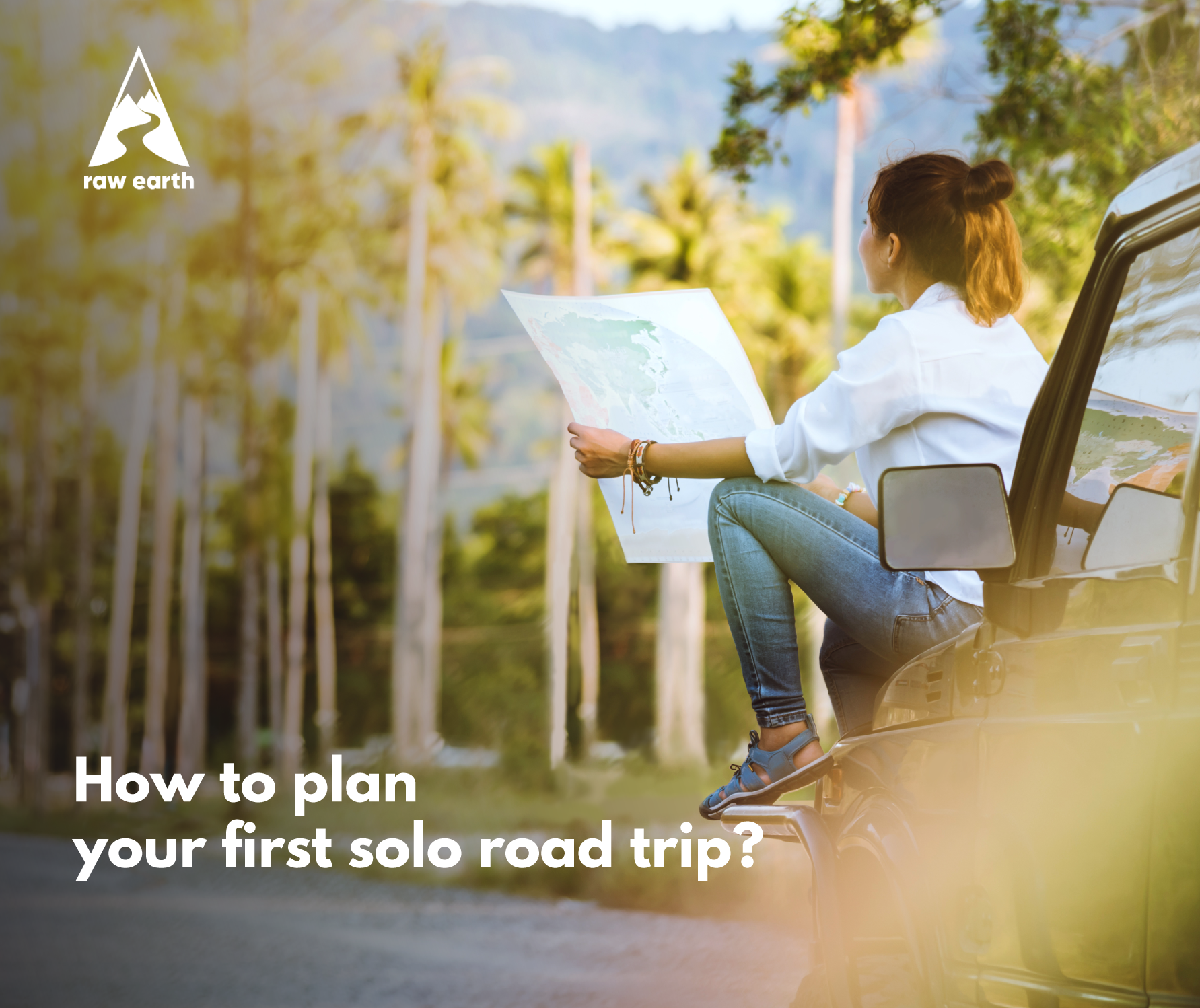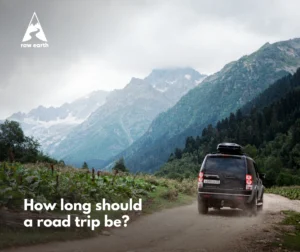Travelling solo for the first time on a road trip can be exciting and a little nerve-wracking. The key is to plan enough so you’re confident but still leave space for adventure. Choosing the right destination, mapping your route, packing smart, and ensuring your vehicle is ready are essential steps. Staying safe, budgeting wisely, and being mentally prepared will help you enjoy every mile. With the right mindset, solo road trips can become some of your most memorable travel experiences.
Introduction
There’s something special about hitting the road alone, your playlist on, and the world unfolding one turn at a time. For many, the first solo travel experience feels like a leap into the unknown. It’s exciting, but it can also feel overwhelming if you’re not sure where to start. That’s where good planning comes in.
The beauty of solo road trips lies in their flexibility. You’re the only one making the calls. Still, having a plan makes the difference between a smooth journey and one filled with unnecessary stress. The goal is to ensure you have accountability of the essentials so you can have fun riding the wave.
9 Essential tips to plan your first solo road trip
Embarking on your first solo road trip is thrilling yet nerve-wracking. With the right preparation, you can turn uncertainty into excitement and create unforgettable experiences. From choosing the right destination and packing smart, to staying safe and budgeting wisely, these tips will guide you through planning a smooth, enjoyable, and empowering journey.
1. Choose the right destination
When taking a solo trip for the first time (or any time), your destination can really affect the trip as a whole. Pick somewhere that suits your comfort level. If this is your first time driving for long distances by yourself, pick a route that is easy to follow and has opportunities for regular resting and refuelling stops.
Consider what types of scenery and activities you enjoy. Do you want winding coastal roads, mountain passes, or small-town charm? Also, consider safety. Look into local conditions, weather patterns, and reviews from other solo travellers. A destination that excites you but makes you feel safe is a good starting place.
2. Plan your route (but stay flexible)
One of the best road tripping tips is to plan your route before you go but be willing to adjust it along the way. Mapping out your route can help you to know how long you can expect to be driving for and the rest stops, petrol stations and attractions along the way that you don’t want to miss.
However, don’t pack your schedule too much! You’ll have a much better time on a solo road trip if there is time for unexpected stops, mid-trip detours and spontaneous moments. Download offline maps just in case, and draw a paper map in case you lose signal.
3. Pack smart and light
Packing too much can be a burden, especially when you’re the only one handling the luggage. When planning solo travel, think about what you truly need. Comfortable clothing, sturdy shoes, and weather-appropriate layers should be at the top of your list.
Bring only essential toiletries, a basic first-aid kit, and any medications you need. Snacks and water are a must for long drives. Keep your valuables in one small bag you can carry easily when leaving your car. Remember that less clutter means less stress.
4. Book accommodation in advance (at least the first few nights)
While it can seem easier to throw caution to the wind, it is helpful for peace of mind in your first solo travel experience to have somewhere to stay for at least the first few nights. If you book ahead, you’re less likely to end up accepting a place to stay while tired or with the less-than-safe feeling.
When looking at accommodation reviews, where would it be easiest to park close to the property, review the location for close amenities and book a short stay? Once you are comfortable on the road, then you can decide to act on your impulses to plan more last-minute accommodation bookings.
5. Prepare your vehicle
A well-prepared car is your best travel companion. Before leaving, have a mechanic check your tyres, brakes, oil, and lights. Carry a spare tyre, jack, jumper cables, and a basic repair kit.
If you’re driving through remote areas, keep extra fuel if it’s safe to store. Make sure your roadside assistance plan is up to date. When travelling solo for the first time, knowing your car is ready removes a big source of worry.
6. Stay connected and safe
Safety should be a top priority. Let someone know your route and check in regularly. Keep your phone charged and carry a portable power bank. Avoid isolated stops late at night, and park in well-lit areas.
It’s also smart to have emergency contacts saved in your phone and written down on paper in case your battery dies. Solo road trips can be freeing, but a little caution goes a long way in making them enjoyable.
7. Mentally prepare for solo travel
Travelling alone means you’ll spend a lot of time with your own thoughts. Some people love that right away; others take time to adjust. When planning solo travel, know that there will be quiet moments, and that’s part of the experience.
Bring things that make you feel comfortable, such as a good playlist, audiobooks, or even a travel journal. Accept the slower pace; use the time to reflect or the sights to simply enjoy the scenery.
8. Budget smartly
Before you leave, you should also consider pencilling in a rough budget of your fuel, accommodation, food, and activities. Include some just in case as well. Most tips for road trips are about how to save money, but for a solo trip, it should also be about alleviating any financial stress.
Look out for some good deals on accommodation and attractions, cook simple meals when available, and have a small amount of cash for those places that are cash only. If you keep to your budget, it helps not worry about money in the background of enjoying your trip.
9. Document the journey
Your first solo travel adventure is something you’ll want to remember. Take photos, jot down thoughts in a notebook, or record short voice notes. These small mementos can bring the trip back to life years later.
If you’re comfortable, share updates with friends or family as an extra safety measure. Solo road trips can become really meaningful events and documenting them for a record of that trip makes them that much more meaningful.
Conclusion
The process of planning your first solo road trip is about finding a happy medium between planning in advance and being flexibly open for whatever happens next. Taking a trip by yourself for the first time can seem challenging. However, if you have a positive mindset and some sensible strategies, it can be a liberating, empowering, and memorable experience. Each mile you drive is a mile closer to understanding yourself better.
FAQs
1. When thinking about my first solo road trip, how far should I go on my first solo road trip?
Start with short travel distances, like a weekend trip or a drive of just a few hours. It is an easy experience to start without quickly becoming stressed.
2. If I am travelling solo, will it be safe for me to sleep in the car itself?
It can be safe in designated spots like rest stops, campgrounds, etc., but check the local laws and trust your instincts on the location.
3. How do I handle loneliness on solo road trips?
Check in with friends and family, play your favourite music or audible, and have conversations with locals when you make stops in towns.
4. What’s the best way to keep costs low?
Budget for gas, use cheap (or free) places to sleep, prepare some of your meals, and explore travel apps that can help reduce the cost of attractions.
5. Do I need special insurance for solo road trips?
Not always, but you may want to check your policy to see if you are covered for travelling significant distances and/or cross-country.




